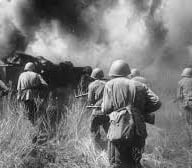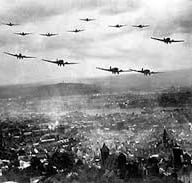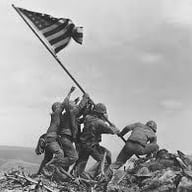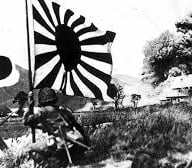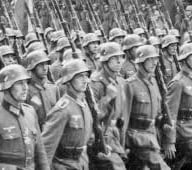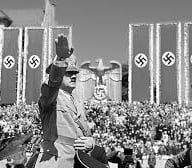Peace at Last: World War II Ends as Allied Forces Declare Victory
Historic Global Conflict Comes to a Close in 1945, Ushering a New Era of Hope and Reconstruction
GOAT NEWS
HindVarta Desk
6/9/20253 min read


London / Washington D.C. / Moscow / Tokyo – August 15, 1945
After six long and grueling years of warfare that claimed the lives of more than 70 million people across every inhabited continent, World War II—the deadliest and most destructive conflict in human history—has finally come to an end. Victory over Japan Day (V-J Day) was officially declared on August 15, 1945, following the unconditional surrender of the Empire of Japan, marking a triumphant yet bittersweet moment in the annals of world history.
World leaders, soldiers, and civilians alike erupted in celebration, relief, and reflection as the final chapter of this devastating war closed with both hope and heartache. While the Allied Forces, led by the United States, the United Kingdom, and the Soviet Union, emerged victorious, the emotional scars and physical destruction left in the wake of global warfare will take decades to heal.
The Path to Surrender
The surrender of Japan came just six days after the United States dropped a second atomic bomb, this time on the city of Nagasaki on August 9, 1945. Just three days earlier, Hiroshima had been obliterated by the first nuclear weapon used in warfare, unleashing unspeakable destruction and killing tens of thousands instantly. The horrifying power of these new weapons forced Japanese Emperor Hirohito to take an unprecedented step: directly addressing the nation via radio to announce surrender.
In his historic address on August 15, Hirohito acknowledged the “unendurable suffering” inflicted by the atomic bombs and cited the need to “pave the way for a grand peace for all the generations to come.”
The formal surrender documents were later signed aboard the USS Missouri in Tokyo Bay on September 2, 1945, officially concluding hostilities and bringing the curtain down on a war that had engulfed the globe since 1939.
🇩🇪 Victory in Europe Came Earlier
While Japan was the last Axis power to surrender, Germany had capitulated months earlier on May 7, 1945, following the suicide of Adolf Hitler in his Berlin bunker. That event marked Victory in Europe Day (V-E Day) on May 8, 1945, prompting jubilant scenes across Allied nations. Crowds packed the streets of London, Paris, and New York City, waving flags and embracing strangers. Yet celebrations were muted by the knowledge that the war in the Pacific still raged on—and that Japan showed no signs of surrendering.
The Human Cost
The human toll of World War II is staggering. Estimates suggest over 70 million people perished, including 6 million Jews systematically murdered in the Holocaust by Nazi Germany. Tens of millions more were wounded, displaced, or traumatized by years of occupation, genocide, bombing raids, famine, and forced labor.
From the bombed-out ruins of Warsaw to the scarred cities of Tokyo, Berlin, and Manila, the war left behind a devastated world. Entire nations must now embark on the enormous task of reconstruction, reconciliation, and redefinition.
A New World Order Emerges
Even as the guns fall silent, the aftermath of the war is reshaping the global order. The United Nations, a new international body aimed at preventing future wars, was formally established in October 1945, replacing the failed League of Nations.
The United States and the Soviet Union, wartime allies, are already showing signs of ideological tension, setting the stage for what some experts are calling a "Cold War." As European colonial powers reel from the costs of war, independence movements are gaining momentum in India, Africa, and Southeast Asia.
Meanwhile, the Nuremberg Trials are set to bring leading Nazi officials to justice, aiming to create a precedent for international law and human rights.
Celebrations Around the World
In Times Square, New York, a now-iconic photograph captured a U.S. Navy sailor kissing a nurse amid a sea of joyous revelers. In London, Prime Minister Winston Churchill addressed a roaring crowd from the balcony of Whitehall, declaring, “This is your victory!”
Parisians danced in the streets, while across the Soviet Union, fireworks illuminated the skies as millions honored the sacrifices of the Red Army. In Australia, Canada, and across the British Commonwealth, church bells rang out, parades marched, and communities held tearful remembrance ceremonies for those who did not return.
The Lessons of War
As the world reflects on six years of unparalleled destruction, several hard lessons have emerged. Military leaders and historians stress the dangers of unchecked authoritarianism, ethnic hatred, and appeasement. Never again, many vow, will such forces be allowed to rise unchallenged.
A new era of diplomacy, justice, and international cooperation is promised—but whether humanity will heed the lessons of the past remains to be seen.
A New Dawn
The end of World War II is not just the cessation of conflict—it is the beginning of a long journey toward rebuilding societies, healing wounds, and redefining global relations.
From the ashes of war, a new world is rising—one that carries the solemn burden of memory and the soaring hope of peace.
🕊️ “Let this day mark the rebirth of freedom, not only in our nations, but in our hearts.”
— Closing line from President Harry S. Truman’s V-J Day address
